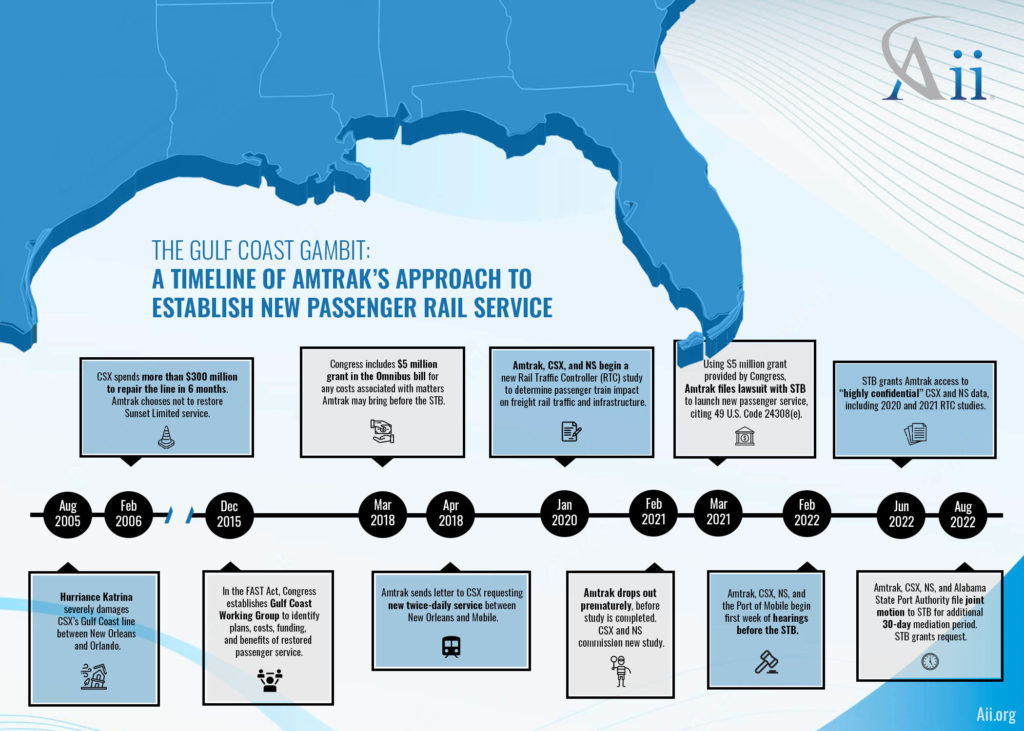Amtrak is seeking to establish twice daily passenger service between Mobile, Alabama and New Orleans, Louisiana. With Hurricane Katrina damaging rail infrastructure back in 2005, many passenger routes along the Gulf Cost have long been dormant. However, over the last several years, Amtrak has increasingly ramped up its efforts to get the service up and running.
Currently, negotiations between the quasi-government sponsored private passenger rail company and the freight railroads that own the track are in front of the Surface Transportation Board (STB). Resolution is expected in the next several months to determine what passenger service may begin and what it will look like.
See our timeline graphic for a summary of events.

Further Background
In March 2018, Congress passed the Consolidated Appropriations Act, which included $5 million to cover costs related to any matters Amtrak may bring before the Surface Transportation Board. As Amtrak pursued launching new Gulf Coast service, it participated in a joint study to determine any potential impacts this would have on freight rail. However, Amtrak withdrew from the study before it was completed.
The additional resources Congress appropriated in the 2018 Omnibus seem to serve as the financial incentive Amtrak needed to roll the dice with the STB, hoping the federal regulator would not require the already fully taxpayer-funded passenger rail service to pay for any infrastructure improvements that the freight rail companies that own the track content would be needed before passenger services are added.
Amtrak has historically limited its infrastructure investments in rural areas, instead prioritizing spending its taxpayer-provided resources on the Northeast Corridor. In fact, Amtrak announced plans to spend billions of dollars to improve rail infrastructure between D.C., NYC, and Boston yet has taken steps – and done so with the taxpayer resources – to avoid spending any resources on the Gulf Coast route. Amtrak’s record of limited financial support for rural communities’ infrastructure, and, in the case of the Gulf Coast, no expenditures necessary to ensure the smooth coexistence of freight and passenger service in those areas, clearly add to the tensions and prolong the issue. As we await the final outcome of mediation and Surface Transportation Board review, the fate of other Amtrak routes across the country may hinge in part on the way the Gulf Coast issue is resolved.
###
The Alliance for Innovation and Infrastructure (Aii) is an independent, national research and educational organization. An innovative think tank, Aii explores the intersection of economics, law, and public policy in the areas of climate, damage prevention, energy, infrastructure, innovation, technology, and transportation.